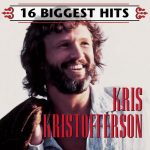I Hate Everything (50 Number Ones Version) – George Strait

Introduction
George Strait’s “I Hate Everything” is one of those songs that hits you right in the heart. Imagine being at a bar, overhearing someone vent their frustrations, and realizing how raw, real, and relatable their words are. The song captures that moment of vulnerability, wrapped up in a simple yet powerful melody. It reminds me of those times when life just piles on, and you can’t help but feel overwhelmed—yet somehow, a stranger’s story becomes your own.
About The Composition
- Title: I Hate Everything
- Composer: Gary Harrison, Frank Rogers
- Premiere Date: July 20, 2004
- Album/Opus/Collection: 50 Number Ones
- Genre: Country
Background
“I Hate Everything” was written by Gary Harrison and Frank Rogers and became a hit when George Strait recorded it in 2004. It’s a song with a universal theme of dealing with personal hardships. Strait’s version was released as a new track on his 50 Number Ones compilation album, reflecting his status as a country music legend. The song is about a man who, in his moment of despair, starts hating everything after life throws one too many curveballs at him. Interestingly, the song touches on the themes of regret and introspection, which resonated with listeners immediately. Its introspective nature and straightforward storytelling are what gave it a special place in George Strait’s extensive repertoire of hits.
Musical Style
Musically, “I Hate Everything” is classic George Strait—simple, melodic, and heartfelt. The arrangement doesn’t distract from the rawness of the lyrics, which is a testament to Strait’s style of storytelling. His soft baritone voice carries the emotions of the man in the song perfectly, allowing listeners to feel every bit of heartache and frustration. The instrumental backing is quintessential country—guitars, steady drums, and a touch of steel guitar that provides that extra emotional weight.
Lyrics
The lyrics of “I Hate Everything” paint a vivid picture of a man who, after a recent breakup, is sitting in a bar, sharing his frustrations with a stranger. The line “I hate my job, I hate my life, and if it weren’t for my two kids, I’d hate my ex-wife” delivers a powerful emotional punch. This is a man at his wit’s end, but as the song progresses, we see a transformation. He begins to open up about the deeper reasons for his bitterness, and by the end, there’s a hint of hope and reflection. It’s not just about hating everything—it’s about the complexities of life and the choices we make.
Performance History
Since its release, “I Hate Everything” has been performed by George Strait on numerous stages, and it quickly became a fan favorite. Strait’s live performances of the song capture the emotion of the original recording, often leaving audiences reflective and moved. The song debuted at number one on the Billboard Hot Country Songs chart, showcasing its immediate connection with fans.
Cultural Impact
Beyond its success on the charts, “I Hate Everything” became a relatable anthem for those going through tough times. It’s been used in TV shows and films that explore themes of regret, loss, and introspection. The song’s raw honesty has kept it relevant in country music, as it stands as a reminder that even the King of Country can deliver a song that speaks to the everyman’s struggles.
Legacy
“I Hate Everything” continues to resonate with audiences, as its message of frustration and eventual self-reflection is timeless. It’s a reminder that no matter how tough life gets, there’s always a glimmer of hope on the horizon. George Strait’s ability to convey such deep emotions through a simple melody and heartfelt lyrics is what solidifies this song’s place in country music history.
Conclusion
“I Hate Everything” is one of those songs that lingers with you long after the final note. It’s a reminder that everyone has their breaking point, but it’s also a story of resilience. If you haven’t listened to it in a while, I encourage you to revisit it—perhaps while reflecting on your own journey. George Strait’s rendition is a must-listen, and for those who want to dive deeper, his live performances add an extra layer of raw emotion that you won’t want to miss.











